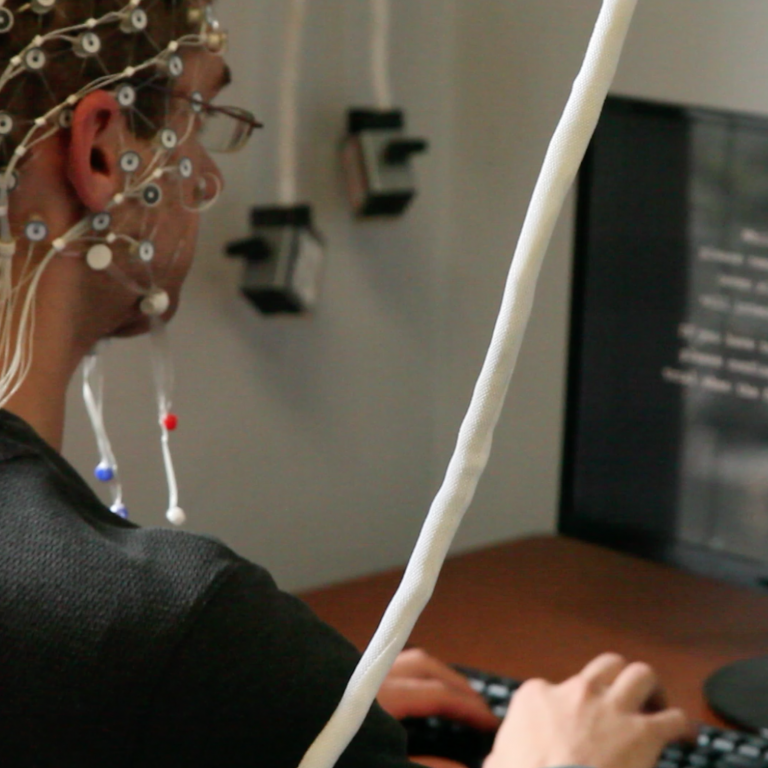by Kirsten McHugh, Character.Org
Character education can substantially impact students’ lives and the culture of schools where it is implemented. When students learn to nurture their character strengths and pay mind to the wellness and well-being of others, they can be freed up to attend to the higher-level disciplinary learning necessary for academic success. As just one small example: it’s hard to learn calculus if you have yet to master the self-regulation needed for extended periods of focused study.
While the short-term benefits of character education–and social-emotional learning more generally–are incredibly positive and should not be dismissed, it’s important to remember that we aren’t educating students only for the immediate future. Almost as a counter to the unfortunate politicization of this type of approach, we have seen numerous arguments made to persuade potential critics about how taking time to include this type of learning in the school day leads to “higher test scores,” “better behavior,” or “college success.” In truth, when we allow for investment in students’ character throughout their educational journey, we are planting seeds for them to eventually learn how to tackle the complex problems and difficult decisions that arise in our lives. Taking a step back to consider the entire arc of a person’s education, from primary school through adulthood, can illuminate the longer-term gains that an approach such as character education can bring.
We know that today’s children will be tomorrow’s leaders and citizens. What virtues, character strengths, and values do we hope those future leaders have at their core in order to lead society in a positive direction? What strategies and thinking patterns do we hope they will employ when meeting challenges in their day-to-day lives and careers?
The Good Project is a research organization based at The Harvard Graduate School of Education’s Project Zero. The Good Project explores the meaning of “good work” by asking questions such as: Why can some people do “good work” even in challenging circumstances? When faced with an ethical dilemma with no “right” answer, how can we find a path to the “best possible” solution? A handful of examples of the types of dilemmas that The Good Project asks students to consider include:
- Should journalists misrepresent themselves to land a story with someone who isn’t interested in speaking with the media, even if it exposes the truth?
- Should the head of a non-profit accept desperately needed funding, even if the source of the money is ethically questionable?
- Should a student speak up when a friend copies a homework assignment, even if that friend could lose a scholarship if caught cheating?
Following nearly 30 years of research and interviews with professionals across a range of fields (from teaching to law, business to acting), it’s clear that the absence or presence of certain elements can either assist or preclude individuals from achieving what is considered to be “good work.” One such framework is referred to as the 3 Es of good work—that is, workers who exhibit excellence (the final product of their work meets a certain standard), ethics (the work is done in a socially responsible way and for the greater good), and engagement (the work has personal meaning). Other core concepts supporting good work include responsibility, reflection, an understanding of values, and more.
Since developing the frameworks and core concepts that support good work, our team has continued conversations with students, educators, and other professionals about these issues. A common request from educators over the years was a structured curriculum preparing students to face challenging issues in their future lives and careers. For this, we created a dilemma-based case study curriculum geared for middle and high school students.
Two years ago, a formal study was launched to determine the efficacy of the lessons within a community of practice of over 100 educators from around the world. Now wrapping up our second and final year of data collection, we are turning our attention towards both qualitative and quantitative analysis of student and teacher surveys as well as a collection of student work.
Through our data analyses we are exploring many possible outcomes of the lessons, including whether a curriculum focused on analyzing dilemmas and deep personal reflection fosters students’ character development. To explore this question, we analyzed students’ responses regarding their character strengths on their pre, mid, and post-surveys.
Preliminary findings indicate that students who participated in the curriculum showed significant positive growth on several strengths including:
- humility (a moral virtue);
- self-regulation (a performance virtue);
- judgment, and curiosity (both intellectual virtues).
Together, these character strengths and related virtues align with The Good Projects 3Es of good work—moral and civic virtues (ethics), performance virtues (excellence), and intellectual virtues (engagement).
Qualitative analysis of students’ self-reflections about their experience with the lessons supports much of the same character growth found through the survey work. One student, in particular, described how her approach to two separate writing assignments highlights the changes brought on by her engagement with the lessons:
“I feel like right now I have a good relationship with good work, and I feel like the class that impacted the most was when we learnt the three E’s because they are applicable for anything.
And a clear example of this is the difference between two essays I had to deliver on different dates. I started procrastinating a lot with the first essay, to the point that I did all of it in 3 hours before the due date. It was horrible, the worst work I’ve ever done. In this 3rd semester, I had to deliver another one. It was beautiful. I invested a lot of hours of research, writing, and correcting and distributing those tasks in the total amount of days I had. As a final product, I delivered the most beautiful essay in my whole life. It was exciting too!
I am also proud because I could have used ChatGPT to build my essay. I was tempted to but at the end I refused because I wanted to have the satisfaction of admiring a two page long essay that I did all by myself. In the end, it was worth it. I guess right now, being mindful of the ethical part (honesty) was a really good thing to inspire me to do good work”
The student’s comparison of her first and second writing assignments illustrates growth in self-regulation and judgment (from procrastination to an organized strategy of time-management, research, and revision), as well as honesty and curiosity (she might have been tempted to use an AI short-cut, but questioned the ethics of that choice and wanted to find out what it would feel like to craft a successful piece herself).
While we are still in our initial stage of analysis, the current data seems to point to a connection between students’ engagement with the dilemmas in the lessons and the activities that promote reflection and deep thinking with the character growth we’ve found through both quantitative and qualitative examination.
No matter what paths are chosen–in work, in life–all individuals undoubtedly face dilemmas where there is no clear “right” decision to be made. During these times, we hope and believe people will draw upon the character strengths developed throughout their formal education in order to make what might only be a “best possible” choice. Strengthening the virtues we’ve described here and other areas of character can help prepare them to do “good work” in their future careers and lives.
About the author: Kirsten McHugh (she/her) is a Project Manager for The Good Project, where she has worked since 2008, contributing to various lines of research. She previously contributed to a study which sought to determine how the goals and content of a traditional four-year residential education might be reconfigured for future generations. Kirsten currently works with The Good Project’s community of practice of worldwide educators who are exploring the meaning of “good work” with their students.





